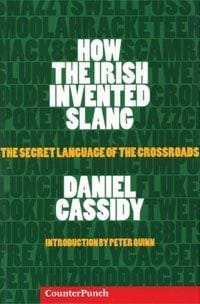Diet: Whose dumb idea was that?
Not mine. (I have enough dumb ideas already.)
The most depressing sight in the world. Photo by Thought Catalog on Unsplash.
We’ve all tried it, regretted it, failed at it, and, ever hopeful, tried it again, enduring disappointment after crushing disappointment along the way.
But today’s newsletter isn’t about relationships, it’s about diets. Those bold attempts to lose a few kilos by depriving ourselves of one of the few joys in our sad lives. What an anaemic trade-off; what a lost opportunity to wolf down a fat, juicy steak accompanied by a seductive Bordeaux-style blend bursting with Hawkes Bay sunshine and Gimblett Gravels complexity, careless of the impact on whatever part of our semi-gelatinous body we have asked God to give us the strength to shrink, but starting tomorrow please.
Diet is a Middle English word taken from the French diete, which meant pittance, or fare. Before diete got to French, the Romans had diaeta and the Greeks diaita, both of which referred to a way of life, or what you and I might think of as a disciplined person’s lifestyle with a decent portion of regular practices thrown in.
After first lopping off the second e, English moulded diete to its own ends, decreeing it would mean one’s regular food. As well it might have - despite what you may think about poverty and hunger during the Middle Ages, many historians believe the typical British diet of the times had about the same number of calories as the typical American diet today and that people doing heavy physical work may have consumed nearly twice as much. No pittance there. Of course, unlike us slothful, computer-loving do-nothings, even our least hardworking forebears were getting in their 10,000 steps a day and then some, probably by lugging a flock of sheep across the valley one by one or something equally daunting.
It took until around 1400 before the modern sense of diet - as in eat kale and pretend you’re happy about it - came about. And so it was that a multibillion dollar industry was born, even if it took a few more centuries for it to truly flourish.
Depending on the source, the global weight loss-weight management industry was worth between US$140b and US$224b in 2021-22, and is expected to rise to over $405b by 2030. If I was an evil genius, I’d corner the global market in chocolate then market the hell out of it. After a year or two, having increased global chocolate sales by lots, I’d then corner the market in weight loss products and programmes and market the hell out of them. Two monopolies, each creating latent, yet untold, demand for the other.
Me after my cunning plan comes to fruition.
If you’ve ever spent time in Japan, you probably know their legislature is called the National Diet. That usage also dates back to Greek and Roman times, and can be heard in the German Bundestag, or Federal Diet. Etymonline is a little vague on whether this diet is etymologically related to the more common diet, although the source words in Greek and Latin are identical. The vagueness kicks in when it says diet in the legislative assembly sense is “associated with Latin dies ‘day’ (from PIE root *dyeu- ‘to shine’).” My research suggests the association with dies is a false etymology, also called a fake etymology or pseudo-etymology or, if it becomes widely accepted among the uneducated masses (that is, everyone except you and me), a folk etymology.
Folk etymologies often have the ring of fancifulness about them. For example, fuck is not an acronym of for unlawful carnal knowledge, golf does not come from gentlemen only, ladies forbidden, and news does not and never did stand for notable events, weather and sports. I was once chided by a colleague for using the phrase rule of thumb, which she said stemmed from the ancient belief that a husband may legitimately beat his wife with an object no thicker than his thumb. Uh, uh. It’s a 17th century term referencing rough and ready measurements by tradesmen. In 1685, a sermon by Scottish preacher James Durham stated “Many profest Christians are like to foolish builders, who build by guess, and by rule of thumb (as we use to speak), and not by Square and Rule.”
In 2007, Daniel Cassidy’s book How the Irish Invented Slang won the American Book Awards for non-fiction. In it, he declared that many slang words are of Irish origin, such as dude (from dúid, “foolish-looking fellow”) and snazzy (from snasach, “polished, elegant”). Other words he claimed for Irish were jazz, poker, sucker, and scam. Mainstream dictionaries, said Cassidy, had overlooked the contribution of the Irish to the English language, since, in America at least, they had been a marginalised, lower-status group.
If the book was to be awarded any prize, it should have been for fiction. Cassidy was the uber-folk etymologist, basing most of his conclusions on phonetic similarity only (an amateurish blunder no serious etymologist would countenance) and providing no historical analysis. To make matters weirder, Cassidy could not speak Irish when he began his book. And to add to his embarrassment, one of his main detractors was Irish lexicographer Terence Dolan, who called the book “wishful thinking”.
No they didn’t.
But back to this food business. If you’ve got the impression that I’m sceptical about the benefits of dieting, you’re bang on. Adopting an unusual, for you, eating routine to lose weight is a recipe - if you’ll pardon the expression - for putting it all back on later with a few extra kilos thrown in for added humiliation.
That said, there are times when a person would be a fool not to take dramatic steps to lose weight. In 2000, I was diagnosed with diabetes. At the time, I was grossly overweight and as sedentary as a man can be. The news came as a shock - I thought I was bulletproof - and saw me eliminate a lot of crap from my diet, replacing it with almost daily visits to the gym. Twenty kilos disappeared from my body, revealing an Adonis-like creature I had never known before.
Since then, I’ve put 10 kilos back on, but my eating habits are better and I get regular exercise, mostly in our large garden and by walking a few times most days up and down the near-vertical 14 steps from the house to the shed. Though hardly a poster boy for healthy living - my former six pack has reverted to a less alluring one pack - how I eat and go about my day have changed a lot since then, which shows how motivating the threat of an early death can be for a person.
The moral of this story, if there is one, is that age old truth: other people’s ideas are invariably dumb until one does them oneself, at which point they become good but only because of the brilliant way one does them, while for everyone else - who most certainly continues doing them wrong - they remain dumb ideas.
I call this Ken’s First Law of Dumbfuckery, a name I am sure mainstream dictionaries will refuse to acknowledge in their continued determination to overlook my massive contribution to the English language.
Bits and specious
One of my sources for today’s newsletter has been the work of Christopher Dyer, a history professor specialising in everyday life during the Middle Ages. Interested readers with an hour or so to spare will find much to appreciate in this paper on life for one Suffolk farmer, Robert Parman, in the 15th century.
Thermogenesis is the process by which warm-blooded animals like you and me generate heat. Surprisingly, a handful of plants can also pull off this trick, including the Eastern skunk cabbage, the Voodoo lily (Sauromatum venosum), and some giant water lilies.
Quote of the week
I’m anorexic really. Anorexic people look in the mirror and think they’re fat. And so do I.
Jo Brand





Interesting post, Ken … but, in the interest of both linguistic and medical accuracy, I must object to your statement that you were diagnosed with ‘diabetes’. I’m not a doctor, but I’m willing to bet that in fact you were diagnosed with Type 2 diabetes.
There is no such thing as ‘diabetes’. It’s a meaningless catch-all term that ignores the extremely significant differences between Type 1 diabetes (a life-threatening autoimmune condition which leads to lifelong dependence on externally-delivered insulin) and Type 2 diabetes (a condition brought on, as you describe, by lifestyle factors that cause insulin resistance, but don’t destroy the body’s ability to produce insulin).
There’s an incredible amount of ignorance in the community about the difference between the two conditions, and I’m disappointed to see you perpetuating this ignorance in your otherwise spot-on posts.